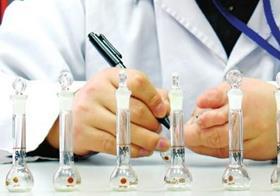
The government has been urged to invest in new technology within the agricultural sector by a new industry report.
The report – Feeding the Future: Innovation Requirements for Primary Food Production in the UK to 2030 – sets out what specific areas of R&D within the fresh produce industry should be prioritised over the next two decades.
Key recommendations include the creation of more system-based approaches to efficiently manage the interaction between soil, water and crop growth, as well as a section urging continued investment in research analysing more effective strategies for growers to successfully combat pests and diseases.
Over the coming years, producers and growers should have a greater involvement in “defining and funding” government programmes and a bigger voice on the boards of investment and research councils, according to the report.
Created by a joint commissioning group, which included the NFU, Agriculture & Horticulture Development Board (AHDB) and the Royal Agricultural Society of England (RASE), the report was edited by Professor Chris Pollock of Aberystwyth University and he hopes it can act as a blueprint for the government as DEFRA prepares to unveil its new agri-tech strategy.
“This report paves the way for funding for longer-term, applied research that links different sectors of our industry. Food producers have tended to deal with today’s problems, but we need to shift the research agenda to deliver for 2030,” said Pollock.
With the UK population set to increase drastically over the coming years, the report also calls for a renewed approach to recruitment in the farming sector and states that better training for workers should be provided on land-based issues including food production, alternative land use and climate change.
Furthermore, the report goes on to highlight the need for a greater focus in the recruitment of plant scientists in areas including soil science and appliedcrop sciences.
NFU president Peter Kendall concluded: “This report must become a key reference document for both policy makers and funders over the coming years and we look forward to a boost in applied research and knowledge exchange making a major contribution to the performance of our farms.”



